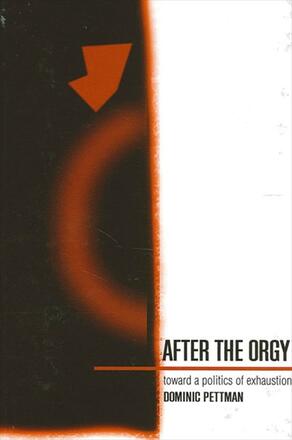
After the Orgy
Toward a Politics of Exhaustion
Alternative formats available from:
Explores the post-Enlightenment obsession with apocalyptic endings.
Description
Applying Jean Baudrillard's question "What are you doing after the orgy?" to the postmillennial climate that informs our contemporary cultural moment, this book argues that the imagination of apocalyptic endings has been an obsessive theme in post-Enlightenment culture. Dominic Pettman identifies and examines the dynamic tensions of various apocalyptic discourses, from the fin-de-siècle decadents of the 1890s to the fin-de-millènnium cyberpunks of the 1990s, in order to highlight the complex constellation of exhaustion, anticipation, panic, and ecstasy in contemporary culture. Through analyses of rapturous cults, cyberpunk literature, post-apocalyptic cinema, techno-paganism, death fashion, and the Y2K prophecy, After the Orgy explores why the twentieth century swung so violently between the poles of anticipation and anticlimax. In the process, the book raises pressing questions concerning the relevance of such ideas in our new millennium and points out alternatives to the monotonous horror of traditional narratives.
Dominic Pettman is Assistant Professor of New Media at the University of Amsterdam.
Reviews
"Thoughtful, wide-ranging, and eloquently written . .. After the Orgy cannot be reduced to any single simplistic thesis, and this is one of its major strengths. It acknowledges and affirms complexity, and yet it presents this complexity in a compellingly clear manner. In short, Pettman is a fine critic, both in terms of breadth of reference and understanding, and in terms of subtlety and thought. " — Steven Shaviro, author of Doom Patrols: A Theoretical Fiction About Postmodernism
"The range of cultural and textual readings offered here are complemented by Pettman's talent for telling a 'story. ' Instead of laboring through a dry interpretation of millennial practices, I listened to a fine storyteller interpret and draw attention to important practices taking place at the present. " — Todd F. Davis, coeditor of Mapping the Ethical Turn: A Reader in Ethics, Culture, and Literary Theory